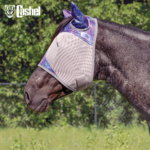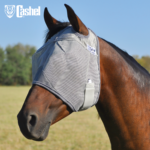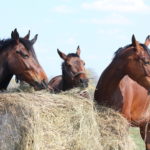Ask any longtime horse owner what they hate more than anything ? when it comes to maintaining their own stable and most will say, ?mud?.? Unfortunately we can’t have spring without it, and with some of the drastic temperature changes we?ve been seeing already many horse owners are already dealing with mud in their horse’s pens and pastures.

?Mud is not only a nuisance but it can also be a safety and a health hazard for horses,? says Laurie Cerny, editor and publisher of www.good-horsekeeping.com.? ?Deep mud can cause injuries like bowed tendons.? It can also be tough on horses with arthritis and can pull shoes from your horses feet.?
In addition, mud, when mixed with manure can harbor harmful bacteria ? creating an ideal environment for thrush, scratches, and rain rot.
Cerny adds, ?It’s well worth the time it takes to do a little mud prevention.? People often marvel that we don’t have more mud on our place ? being that our farm is located in a lower area and near a creek.? I’m a bug about keeping my pens picked up and it makes a world of difference.?
Here are the top five ways to keep mud under control:
1.???Keep your pens and pastures picked up ? especially during times of transition (when temps are going up and down).? Pick of manure and rake up uneaten hay.? Sometimes (especially after long periods of snow) you will have to do this daily as manure areas and feeding spots thaw out layer by layer.
2.???Feed your best hay outside and in limited amounts.? The less hay horses waste, the less there will be to rake up, or to mix in the ground when the temperature rises, or when it rains.? Hay is one of the biggest contributors to deep mud that turns extremely hard when it dries ? remember that buildings were once made using mud (made from mixing dirt, water, and straw).
3.??If possible, keep horses inside immediately following a rain.? Letting pens dry out a little will lessen the areas that get churned up.
4.??Letting horses eat the bulk of their hay in their stalls and waiting and hour or so before letting them out in pens will reduce the amount of manure in your pens.? Horses will pass the majority of their manure within two hours of eating.
5.??Periodically dig out chronically muddy areas and replace the contaminated dirt with new soil ? preferably sand.
For more practical horse care information go to www.good-horsekeeping.com.? Weekly blog postings are also featured at good-horsekeeping.blogspot.com.





